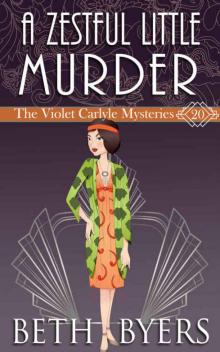 A Zestful Little Murder
A Zestful Little Murder The Violet Carlyle Mysteries Boxset 1
The Violet Carlyle Mysteries Boxset 1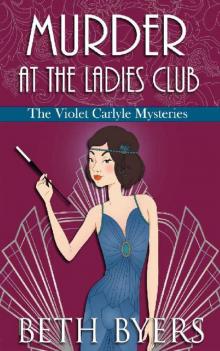 Murder at the Ladies Club
Murder at the Ladies Club Bright Young Witches and the Merry Dead
Bright Young Witches and the Merry Dead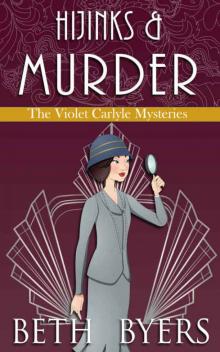 Hijinks & Murder
Hijinks & Murder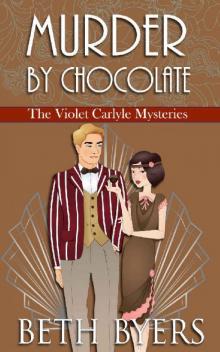 Murder By Chocolate
Murder By Chocolate Aeronaut Gone
Aeronaut Gone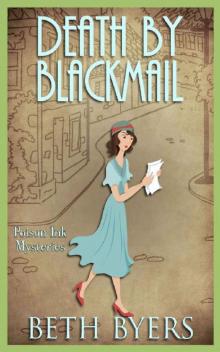 Death by Blackmail
Death by Blackmail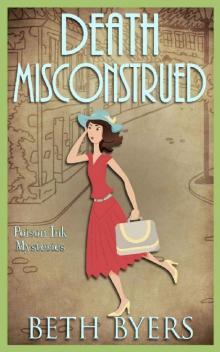 Death Misconstrued
Death Misconstrued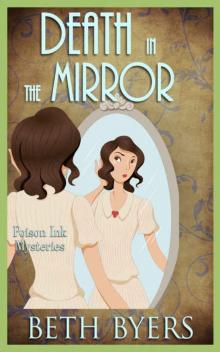 Death in the Mirror
Death in the Mirror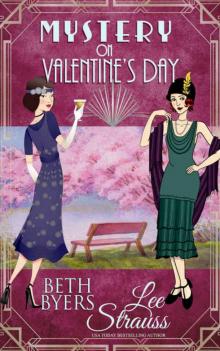 Mystery on Valentine's Day
Mystery on Valentine's Day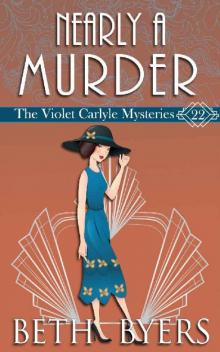 Nearly A Murder: A Violet Carlyle Historical Mystery (The Violet Carlyle Mysteries Book 22)
Nearly A Murder: A Violet Carlyle Historical Mystery (The Violet Carlyle Mysteries Book 22)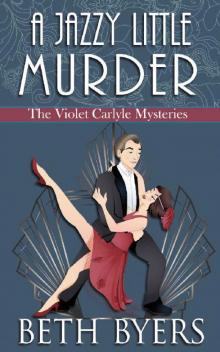 A Jazzy Little Murder
A Jazzy Little Murder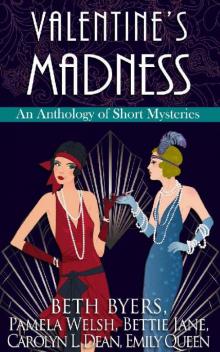 Valentine's Madness: A 1920s Historical Mystery Anthology
Valentine's Madness: A 1920s Historical Mystery Anthology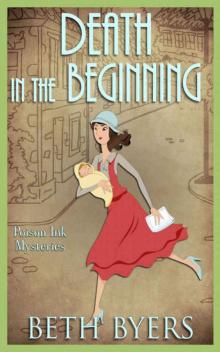 Death in the Beginning
Death in the Beginning Death Witnessed
Death Witnessed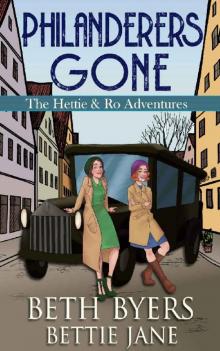 Philanderers Gone
Philanderers Gone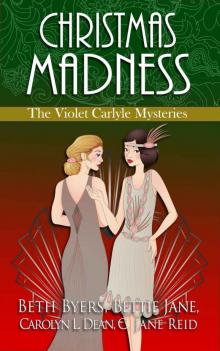 Christmas Madness
Christmas Madness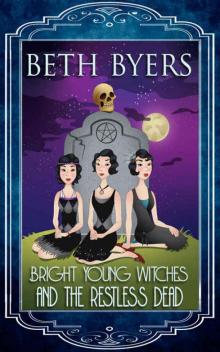 Bright Young Witches & the Restless Dead
Bright Young Witches & the Restless Dead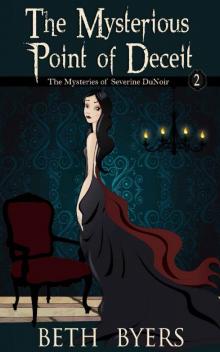 The Mysterious Point of Deceit
The Mysterious Point of Deceit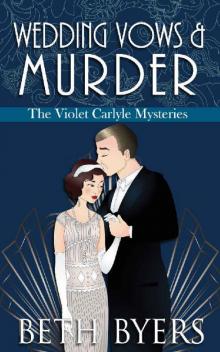 Wedding Vows & Murder
Wedding Vows & Murder Holiday Gone
Holiday Gone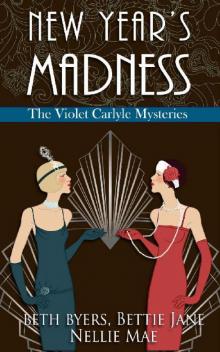 New Year's Madness:
New Year's Madness: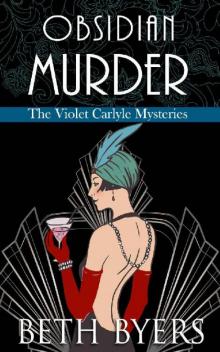 Obsidian Murder
Obsidian Murder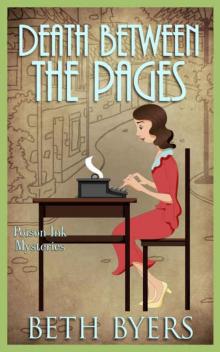 Death Between the Pages
Death Between the Pages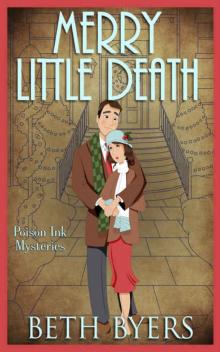 A Merry Little Death
A Merry Little Death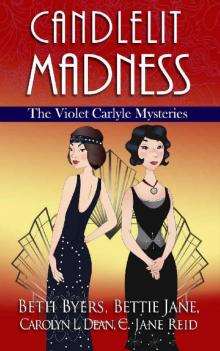 Candlelit Madness: A 1920s Historical Mystery Anthology including Violet Carlyle
Candlelit Madness: A 1920s Historical Mystery Anthology including Violet Carlyle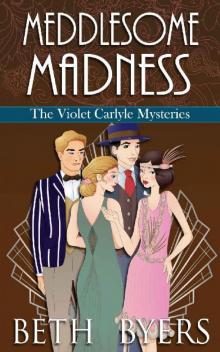 Meddlesome Madness: A Short Story Collection
Meddlesome Madness: A Short Story Collection The Violet Carlyle Mysteries Boxset 2
The Violet Carlyle Mysteries Boxset 2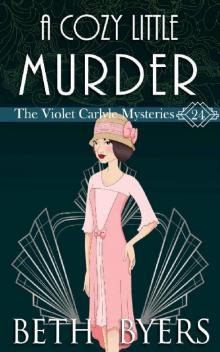 A Cozy Little Murder: A Violet Carlyle Cozy Historical Mystery (The Violet Carlyle Mysteries Book 24)
A Cozy Little Murder: A Violet Carlyle Cozy Historical Mystery (The Violet Carlyle Mysteries Book 24)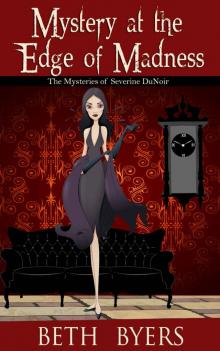 Mystery at the Edge of Madness
Mystery at the Edge of Madness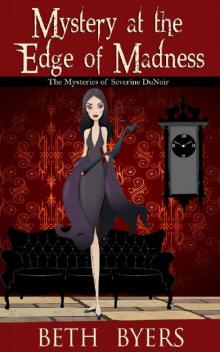 Mystery at the Edge of Madness: A Severine DuNoir Historical Cozy Adventure (The Mysteries of Severine DuNoir Book 1)
Mystery at the Edge of Madness: A Severine DuNoir Historical Cozy Adventure (The Mysteries of Severine DuNoir Book 1)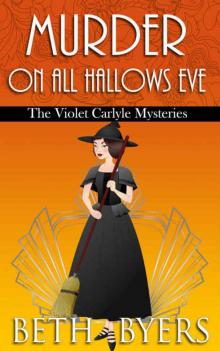 Murder on All Hallows
Murder on All Hallows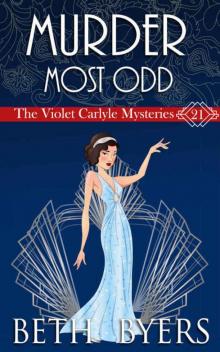 A Murder Most Odd
A Murder Most Odd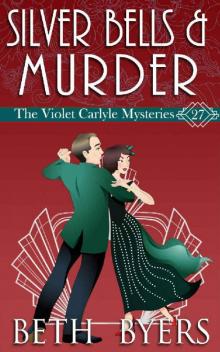 Silver Bells & Murder: A Violet Carlyle Historical Mystery
Silver Bells & Murder: A Violet Carlyle Historical Mystery Murder by the Sea
Murder by the Sea Lemonade & Loathing
Lemonade & Loathing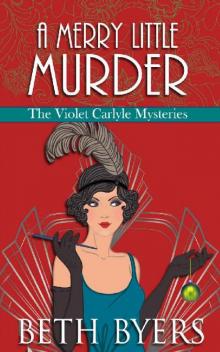 A Merry Little Murder
A Merry Little Murder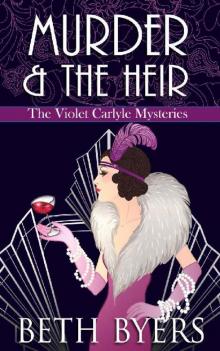 Murder & The Heir
Murder & The Heir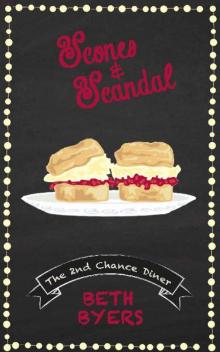 Scones & Scandal
Scones & Scandal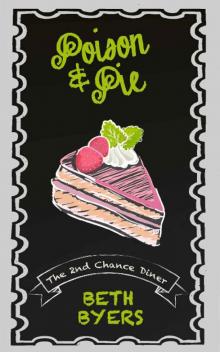 Poison & Pie
Poison & Pie Tea & Temptation: A 2nd Chance Diner Cozy Mystery
Tea & Temptation: A 2nd Chance Diner Cozy Mystery Double Mocha Murder: A 2nd Chance Diner Cozy Mystery
Double Mocha Murder: A 2nd Chance Diner Cozy Mystery Kennington House Murder: A Violet Carlyle Cozy Historical Mystery (The Violet Carlyle Mysteries Book 2)
Kennington House Murder: A Violet Carlyle Cozy Historical Mystery (The Violet Carlyle Mysteries Book 2) The Pumpkin Problem
The Pumpkin Problem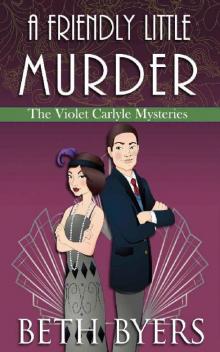 A Friendly Little Murder
A Friendly Little Murder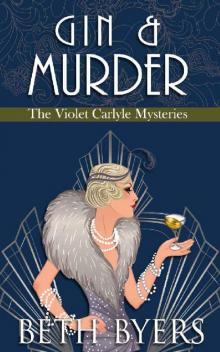 Gin & Murder
Gin & Murder Wedding Cake & Woe
Wedding Cake & Woe Donuts & Danger: A 2nd Chance Diner Cozy Mystery
Donuts & Danger: A 2nd Chance Diner Cozy Mystery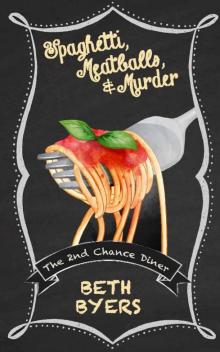 Spaghetti, Meatballs, & Murder
Spaghetti, Meatballs, & Murder Cinnamon Rolls & Cyanide
Cinnamon Rolls & Cyanide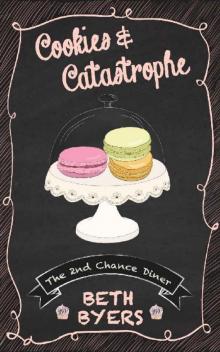 Cookies & Catastrophe
Cookies & Catastrophe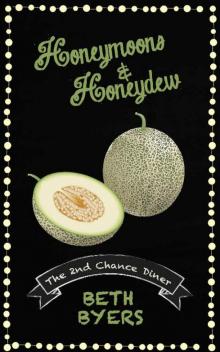 Honeymoons & Honeydew
Honeymoons & Honeydew